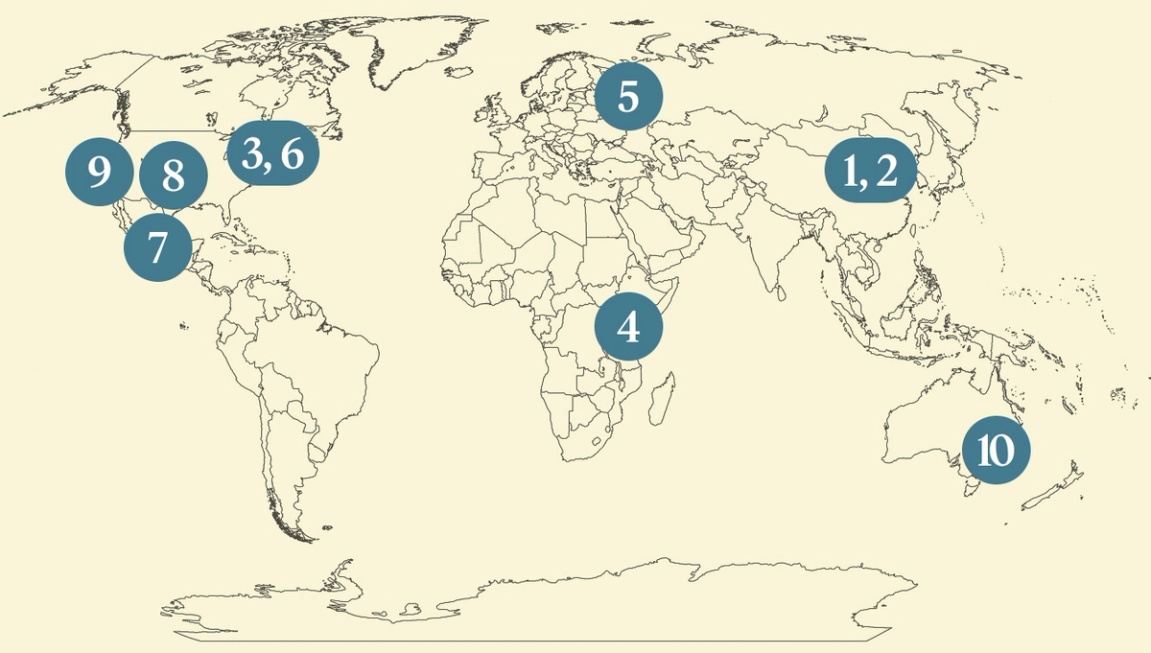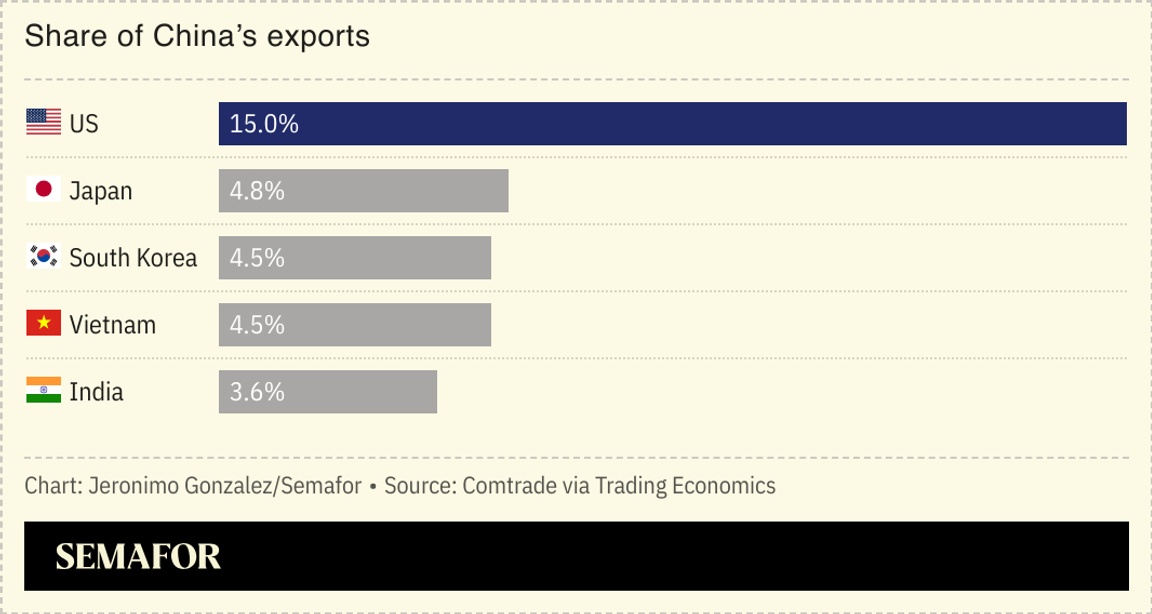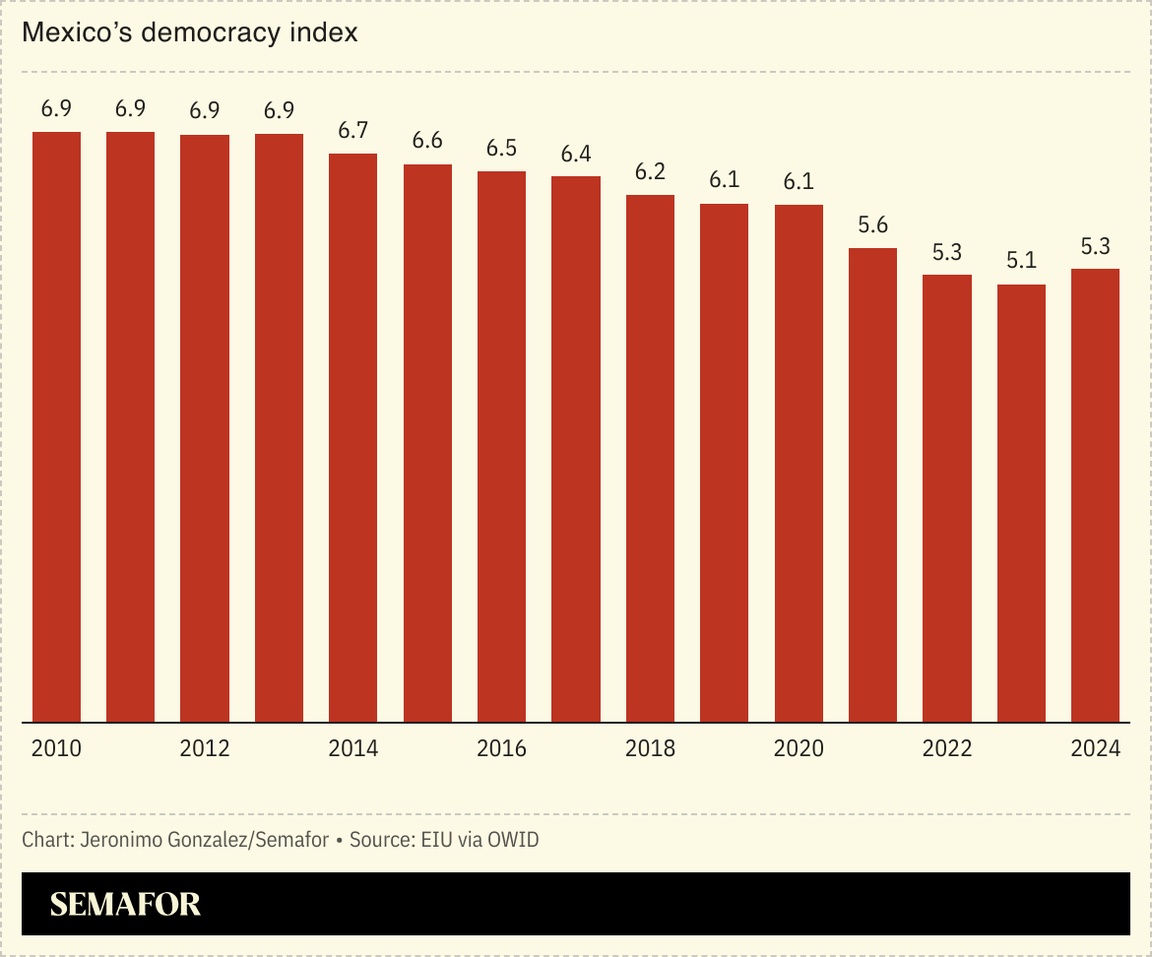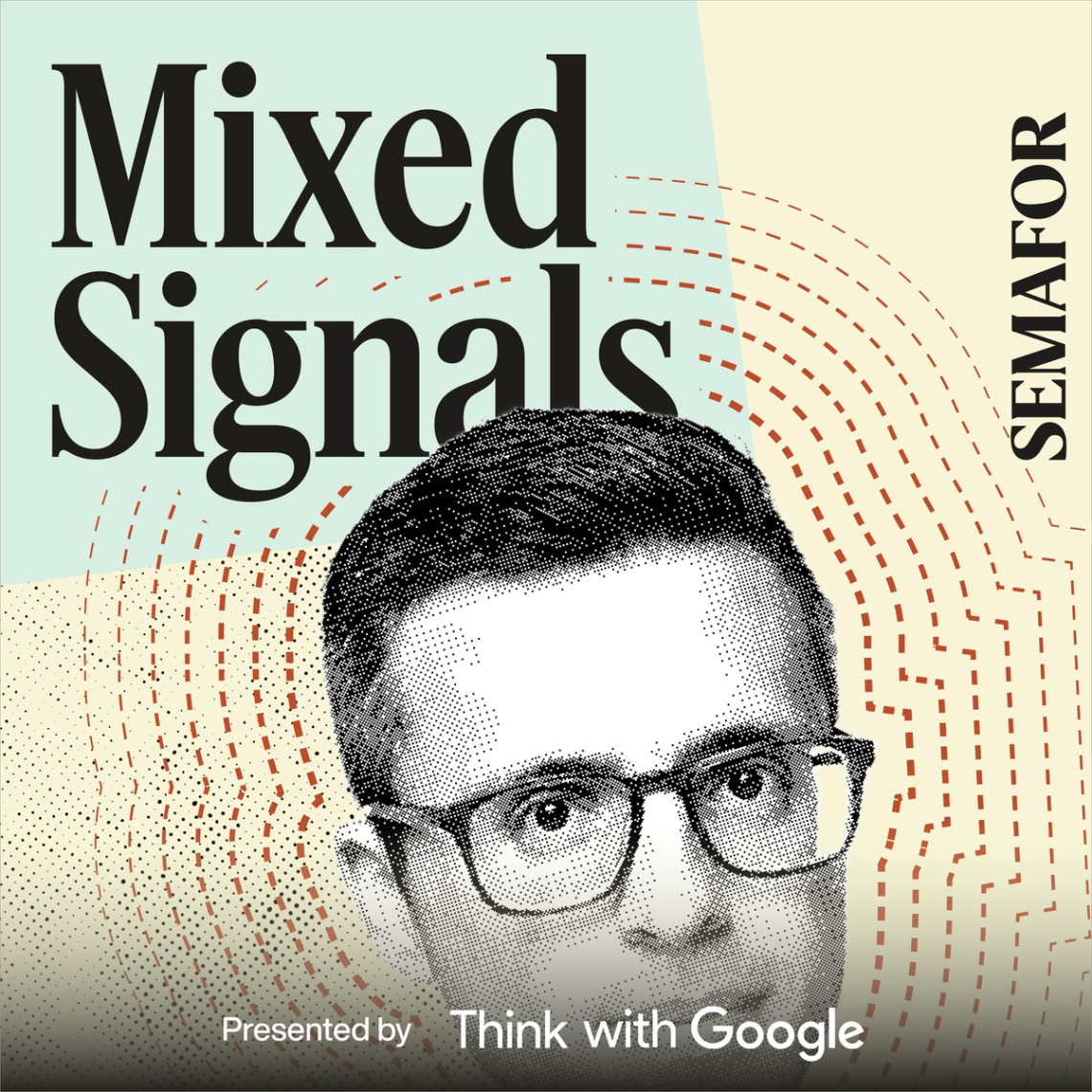| | China pledges to back tariff-hit firms, skepticism over Moscow’s hints at a peace deal, and Anthropi͏ ͏ ͏ ͏ ͏ ͏ |
| |   Nairobi Nairobi |   Sydney Sydney |   Mexico City Mexico City |
 | Flagship |  |
| |
|
The World Today |  - China’s trade support
- Beijing halts US purchases
- Firms’ COVID-era lessons
- Kenya looks to EU, China
- Moscow hints at deal
- Trump’s court setbacks
- Mexico’s cartel judges
- US-China space cooperation
- AI black box fear
- Sydney’s AI DJ
 How Italy’s stranglehold on the papacy was broken, and recommending a ‘simple, honest’ trattoria in Rome. |
|
China promises trade support |
 China’s leaders vowed to “resolutely focus” on supporting firms hit by US President Donald Trump’s trade war, insisting they would head off Washington’s punishing tariffs. Trump has imposed duties of at least 145% on Chinese goods, although his administration has voiced openness to negotiating them down, which analysts characterized as weakness: A Bloomberg editor argued Chinese leader Xi Jinping was “winning his tariff waiting game with Trump,” while Handelsblatt said the US president was “Beijing’s best man.” Yet China’s economy is not impervious, with the Financial Times reporting its factories are slowing production and furloughing workers, while Bloomberg said Beijing is considering lowering its reciprocal levies on US goods in order to bolster vulnerable sectors. |
|
 Jim Vondruska/File Photo/Reuters Jim Vondruska/File Photo/ReutersChina slashed purchases of American farm goods while Apple will reportedly shift assembly of US-bound iPhones to India, as protectionism upends trade between the world’s two biggest economies. China is the US’ biggest buyer of soybeans and the third biggest of pork, but has cancelled 97% worth of orders of the former and 72% of the latter. Agriculture accounts for a tenth of all US employment; President Donald Trump doled out much-criticized farm subsidies in his first term with a similar package being debated now. Separately, the Financial Times said Apple aimed to make all US-bound iPhones in India by the end of next year, a seismic shift after building its cutting-edge supply chain around China. |
|
Executives draw on COVID lessons |
  FedEx CEO Raj Subramaniam. Annabelle Gordon/Getty Images for Semafor. FedEx CEO Raj Subramaniam. Annabelle Gordon/Getty Images for Semafor.Business leaders are drawing on their pandemic playbook as they grapple with the economic disruptions sparked by US President Donald Trump’s policies. The upending of supply chains and halt to travel during the COVID-19 outbreak forced companies to adapt: FedEx’s chief executive told Semafor’s World Economy Summit the company learned lessons “for this world where disruption seems to be the norm.” Trump’s railing against Canada and Europe, alongside his high-profile immigration crackdown, have hit US-bound tourism, and retailers are again looking to local customers to make up the shortfall: One California mall that catered to Chinese tourists pre-pandemic later shifted its advertising budget from China to the state. “We’ve been through it before,” an executive told Business of Fashion. |
|
Kenya boosts EU, China ties |
 Iori Sagisawa/Reuters Iori Sagisawa/ReutersKenya bolstered trade ties with both the European Union and China in the face of tariff threats from the US — its second-biggest export market. The EU said it expects trade between the bloc and Africa’s sixth-biggest economy to double after signing a duty-free trade agreement. Meanwhile Nairobi upgraded its ties to Beijing to “a new level” after a meeting between the countries’ leaders in China. Over the past two decades, Beijing has become Africa’s biggest lender and trade partner, while Chinese firms have outmuscled American and European competitors across the continent. |
|
Russia says ‘ready’ for Ukraine deal |
 Alina Smutko/Reuters Alina Smutko/ReutersRussia’s foreign minister said Moscow was “ready to reach a deal” on peace with Ukraine, though analysts voiced skepticism. With US President Donald Trump’s envoy due in Moscow today for fresh talks with Russian President Vladimir Putin, Sergey Lavrov told CBS news that “some specific points … need to be fine-tuned,” echoing Kremlin claims that minor issues were holding up a ceasefire. Ukraine and its supporters argue, however, that Russia has been playing for time while continuing to push forward on the battlefield, and that a US-designed peace deal is overly favorable to Moscow. “What is there in this deal that can realistically stop a third Russian invasion?” former British Prime Minister Boris Johnson wrote. “Nothing.” |
|
Courts block Trump orders |
 Craig Hudson/Reuters Craig Hudson/ReutersUS courts blocked three of President Donald Trump’s executive orders, once again setting the White House in conflict with the judiciary. In a series of blows to Trump’s policy agenda, federal judges halted orders requiring public schools to end DEI initiatives, imposed proof-of-citizenship at voting booths, and froze government funds to jurisdictions which harbor undocumented immigrants. The orders are the latest in a series of legal headaches for the Trump administration: It is refusing to cooperate with a Supreme Court ruling requiring it to “facilitate” the return of a US resident wrongly deported to El Salvador, a stance which critics say risks creating a constitutional crisis. |
|
Mexico’s judicial candidates |
 A former Mexican state attorney with alleged ties to organized crime and lawyers for notorious cartel bosses are among the candidates to become judges in an election due this year. Last year, Mexico’s ruling party passed a law that made it only the second country after Bolivia to elect its judges via popular vote, with 881 posts — from the Supreme Court down to local magistrates — due to be chosen in June. Experts believe the election of judges with ties to organized crime could be the death knell of Mexico’s democracy. Meanwhile economists fear the erosion of the rule of law will lead to yet greater uncertainty for investors at a time when US tariffs threaten to kneecap the economy. |
|
 Ezra Klein is on a book tour — you may have heard his voice on some of your other favorite podcasts talking about Abundance. Today, Ben and Max also talk to The New York Times columnist and host… but you won’t hear anything about the book (you’ll just have to buy it). Instead, they ask Ezra what he’s learned about the media and podcasting through this latest tour, how the “abundance” framework might apply to media, and if Trump will go after the press next. They also discuss how he’s become a rare media celebrity for liberals, why his fans feel saner listening to him — and how that may not be a good thing. |
|
Rivals still friends in space |
 The Chang’e 5 satellite. China News Service/Wikimedia Commons Photo. The Chang’e 5 satellite. China News Service/Wikimedia Commons Photo.The China National Space Administration shared rare lunar rocks with US scientists, despite the two countries’ ongoing trade war. The Chang’e 5 mission was the first to land on the Moon’s far side: Scientists hope the rocks will give insights into lunar formation. The CNSA said they were “a shared treasure for all humanity.” A US space scientist told the BBC that “international cooperation in science… is the norm” regardless of politics, a point illustrated by a Russian spacecraft taking a US astronaut to the International Space Station this month. While US-China scientific collaboration has weakened — NASA is not allowed to share its own lunar samples with CNSA — the two nations renewed a key cooperation agreement late last year. |
|
|